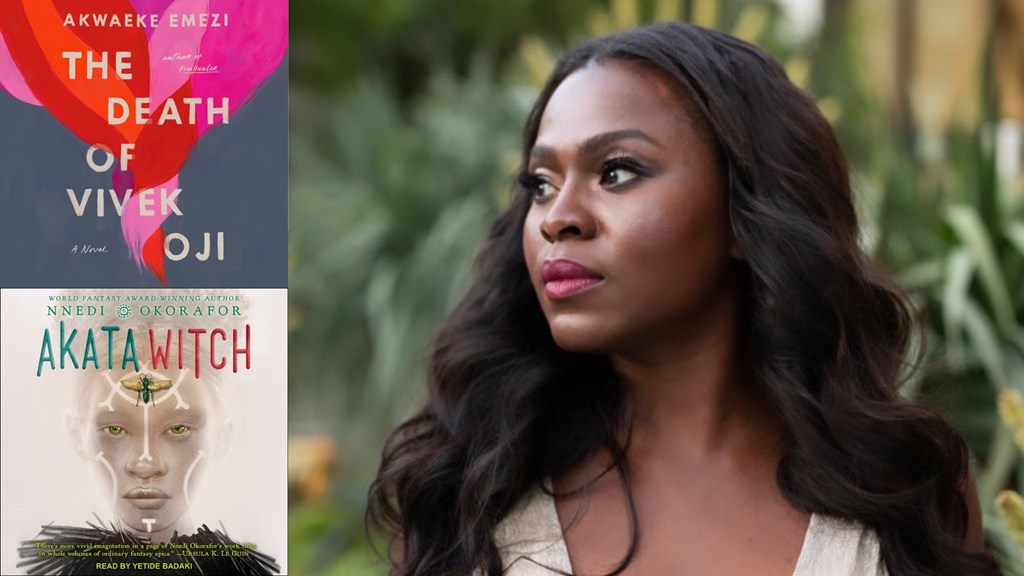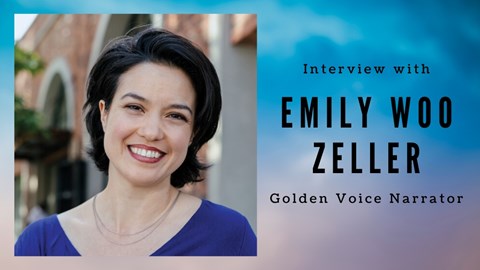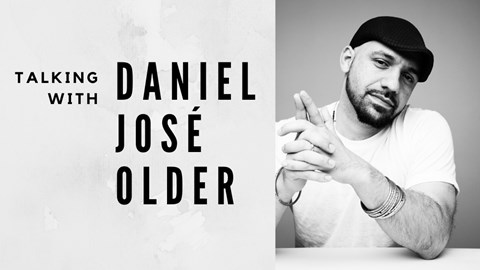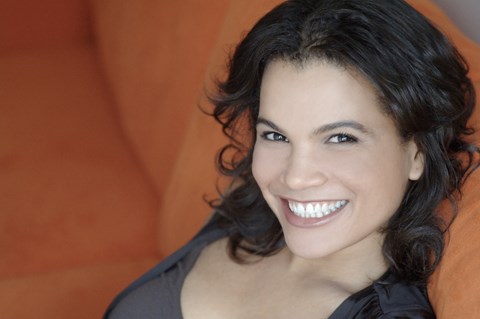Nigerian-American writer, producer, and actress Yetide Badaki, well known for acting in the TV series “This Is Us” and “American Gods,” comes from a family of storytellers. She recalls sitting by the fire as a youth and listening to her elders. “Storytelling is such a part of just being,” she says. “Language and the use of it, even when people are hurling insults, can be Shakespearean.” Using language in a vibrant manner attracted Badaki to narration. “It comes right to that moment between narrator and audience.”
About choosing audiobooks to narrate, Badaki says, “It’s about resonance.” She’s drawn to stories that allow her to be a vessel, adding to the larger story. “There’s an alchemy when the words literally resonate out of your mouth. It pulls you into the space. And we are now in that world.”
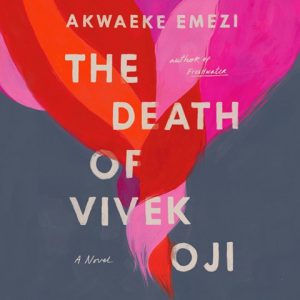 She remembers reading Akwaeke Emezi’s novel THE DEATH OF VIVEK OJI and making a profound connection. “The use of language is stunning.” But in addition to the way a story is told, she is moved by the author’s ability to explore the human condition. The details and specificity become universal, she says, allowing us as members of the human race to feel closer. Stories like this and Nnedi Okorafor’s books, which she has also enjoyed narrating, reach across the diaspora.
She remembers reading Akwaeke Emezi’s novel THE DEATH OF VIVEK OJI and making a profound connection. “The use of language is stunning.” But in addition to the way a story is told, she is moved by the author’s ability to explore the human condition. The details and specificity become universal, she says, allowing us as members of the human race to feel closer. Stories like this and Nnedi Okorafor’s books, which she has also enjoyed narrating, reach across the diaspora.
Badaki first prepares for an audio narration by reading the author’s book and immersing herself in that experience. The parts she is unfamiliar with, she takes notes on for further exploration. She especially loves notes from authors as a way of connecting to their voice. She then starts to feel out the different characters. “They tend to speak because of the way they’re written. There’s a tone to them.”
The audiobooks she narrates all have their own challenges, in part because she’s hard on herself and wants to “do service to the work.” For example, her recent narration THE DEATH OF VIVEK OJI was challenging because of current circumstances. Given the coronavirus pandemic, she questioned whether or not she would be able to get into a studio. The audiobook team helped her set up space in her home, and she communicated with the director remotely, using Zoom. She also spoke of the emotional challenges connected to Emezi’s audiobook and how real these experiences are in the world. Addressing identity, specifically queer identity in normative spaces, is its own challenge, but she declares, “It is so worth it.”
When Badaki isn’t working she enjoys watching TV and films. And, without question, she loves reading. This isn’t surprising, given her passion for words and their transformative way of living on and off the page.
“When words move me, I love to hear them.”— Traci Currie
Photo by Erin Simkin


